








Philadelphia Corporation for Aging (PCA) is the Area Agency on Aging for Philadelphia County and is dedicated to serving Philadelphia’s older adults and adults with disabilities.
PCA publishes Milestones and offers:
• Care in the home
• Caregiver & grandparent support
• Employment & volunteer programs
• Health education
• Home-delivered meals
• Home repairs & modifications
• Information & referral
• Legal services
• Ombudsman services
• Protective services
• Senior centers
• Transportation
• Veteran-directed care

Report suspected elder abuse 24/7 to the PCA Helpline: 215-765-9040.
For general inquiries about PCA or aging services, email AskHelpline@pcaCares.org or call 215-765-9040.
Published by Philadelphia Corporation for Aging
Najja R. Orr, DBA, FCPP President and CEO
PCA Board of Directors 2025
Glenn D. Bryan, Chair
Louis G. Colbert, Co-Chair
Jaqueline S. Zinn, Ph.D., Secretary
Denise Adamucci, Treasurer
Satya B. Verma, O.D., Immediate Past Chair
Cheryl Croxton
Patricia Canela-Duckett
Sandra McNally
Paul Nathanson
Norma D. Thomas, DSW
Sharlene Waller
Emeritus: Arthur E. Helfand, D.P.M.
Milestones is published monthly and distributed at more than 800 locations throughout Philadelphia.
Check us out online: pcaCares.org/ Milestones
Editorial & Distribution: Alicia M. Colombo 215-765-9000, ext. 5081 MilestonesNews@pcaCares.org
Advertising: Kristin Long 215-606-7310 Kristin.Long@pcaCares.org
Subscriptions: Home delivery: $12/year MilestonesNews@pcaCares.org
The views expressed in Milestones are not necessarily those of Philadelphia Corporation for Aging (PCA). Milestones will not knowingly accept or publish fraudulent or misleading advertising. Milestones reserves the right to edit, revise or reject ads. Milestones assumes no responsibility for errors, misprints, omissions or misinformation; for failure to publish an ad; or for any damages of any kind. Neither the publisher nor any other party is rendering expert advice in this publication. No part of this newspaper may be reproduced without the permission of PCA.
©2025 Philadelphia Corporation for Aging. All rights reserved.

By Najja R. Orr, DBA, FCPP PCA President & CEO
You may have heard that the U.S. Department of Health and Human Services (HHS) recently shared a major change. It plans to reorganize its structure, which includes breaking apart the Administration for Community Living (ACL) and moving its programs to other HHS agencies.
This is still a developing situation, and things may change quickly. We want to keep you informed because this may affect services that help older adults.
ACL is the federal agency that runs programs to help older adults and people with disabilities live safely at home and in the community. These programs help people avoid unneeded hospital stays or nursing home care. The services include home-delivered meals, transportation, inhome help and caregiver support. They are funded through the Older Americans Act (OAA) and delivered by local partners —
including PCA.
PCA receives part of its funding from the federal government through the OAA. While this change is happening at the national level, PCA’s mission stays the same. We are committed to serving older Philadelphians and will keep standing up for the services they rely on. We will share updates as we learn more.
For the latest updates on PCA services and programs, visit pcaCares.org. Flip the Script on Aging

Every May, PCA celebrates Older Americans Month. It’s our chance to highlight the many ways older adults can stay active, engaged, and inspired.
In this issue of Milestones, you’ll find ideas to help you explore new interests, stay connected and discover fresh purpose.
One of our favorite events is PCA’s Celebrate Arts & Aging program. This month, we’re showcasing original artwork by older adults at three locations across the city — and online. You’ll even see some featured pieces in this issue.
At PCA, we believe creativity doesn’t have an age limit. Celebrate Arts & Aging reminds us that self-expression is a lifelong journey — and that older adults are full of imagination, talent and stories worth sharing.
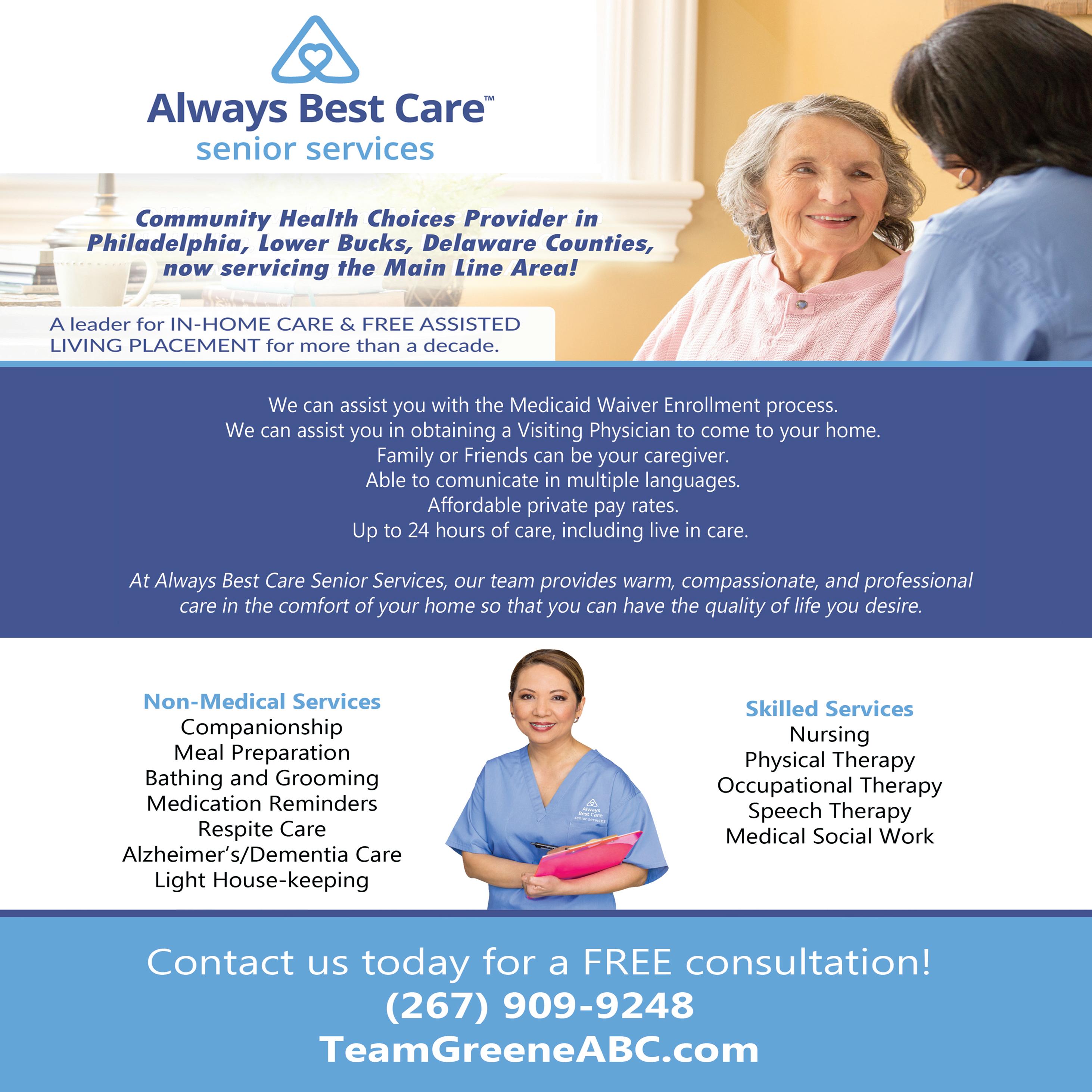

By Bill Conallen
Philadelphia’s senior centers are vibrant hubs where older adults can discover new passions, develop skills and connect with their peers. With 28 PCA-funded senior community centers and satellite meal sites across the city, these centers offer an array of activities that promote wellness, creativity and lifelong learning.
From low-impact aerobics to yoga to tai chi, senior centers provide a variety of fitness classes tailored to support mobility, strength and balance. Evidence-based health workshops empower older adults with self-management strategies for chronic conditions, while wellness screenings help detect potential health concerns early. Grants from the Pennsylvania Department of Aging in 2024 have helped enhance these offerings, ensuring that older adults have access to high-quality fitness and wellness programs.
“These programs support physical well-being and also provide an
opportunity for older adults to socialize and maintain their independence,” said Jacqui Makowski, PCA’s senior center supervisor. “Senior centers play a vital role in fostering healthy aging by creating spaces where people can connect, learn and thrive.”
Whether picking up a paintbrush for the first time or learning to play an instrument, older adults can tap into their creative side through art and music programs. At St. Edmonds Senior Community Center in South Philadelphia, special events and cultural celebrations bring older adults together to explore different traditions. At the same time, Southwest Senior Center offers hands-on creative workshops designed to inspire self-expression through group activities, such as choir practice. For those interested in the performing arts, some centers have introduced theater and dance programs, offering opportunities for older adults to take the stage and showcase their talents.
Staying connected in today’s world requires digital know-how, and many senior centers offer technology classes to help older adults
navigate smartphones, social media and video chats. At Firehouse Active Adult Center in West Philadelphia, members are learning essential digital skills that enable them to engage with their families, manage online banking and stay informed. These programs help bridge the digital divide, empowering older adults to navigate an increasingly online world with confidence.
Senior centers serve nutritious communal meals and also provide opportunities to explore culinary arts. Cooking demonstrations and nutrition workshops help older adults make informed food choices while discovering new flavors. West Philadelphia Senior Community Center has introduced handson cooking classes celebrating international cuisines, encouraging older adults to share their cultural dishes and experiences. These programs not only promote healthier eating habits but also foster deeper community bonds through shared meals and traditions.
“We are reinvigorated in our mission to support our beloved older adults in their pursuit of holistic aging and independence,” said Paulette Cunningham, director of PCA’s Southwest Senior Center. “Together, with the support of the older adults we serve, we will continue to build a vibrant and inclusive environment where every older adult can thrive and live an enriched life that is defined by dignity.”
Beyond skill-building and fitness, Philadelphia’s senior centers foster a deep sense of belonging. Support groups, social events and storytelling workshops provide older adults with spaces to share their experiences and wisdom. At Mann Older Adult Center in North Philadelphia, spoken word writing programs allow individuals to leave a legacy for future generations. Through these programs, older adults can reflect on their journeys while inspiring and mentoring younger generations within the community.
With more than 20,000 older Philadelphians engaging with senior centers each year, these community spaces continue to evolve to meet the diverse needs of the city’s aging population. Thoughtful leadership has only helped to strengthen these programs, ensuring that Philadelphia’s older adults can embrace new opportunities and continue thriving.
“As we look to the future, we remain committed to expanding opportunities for older adults to learn, grow, and stay active in their communities,” Makowski added. “It’s never too late to start something new, and Philadelphia’s senior centers are here to make that possible.”
To find a senior center near you, call the PCA Helpline at 215-7659040 or visit pcaCares.org/senior-centers.

By Mary Anna Rodabaugh
Dr. Crystle Roye-Gill, 63, believes wholeheartedly in keeping moving as a plan for aging well. As a retired Philadelphia School District principal, Roye-Gill is an avid mentor and runner in Students Run Philly Style’s MileUp program, a diversion program designed to keep students, ages 11-17, out of the criminal justice system. Students Run Philly Style is a nationally recognized program that pairs volunteer running leaders with teams of students to inspire them to push themselves further than they ever imagined. Many students in the program go on to complete 10-mile runs, half-marathons (13.1 miles) and even full marathons (26.2 miles).
As an assistant principal at Richard Allen Preparatory Charter School, in West Philadelphia, from 1999-2009 and principal at Thomas Holme Elementary School, in Northeast Philadelphia, RoyeGill has always had a passion for molding and supporting children.
in her elementary school or teen years.
“I made a vow during my dissertation work in 2013 to actually begin to enter runs in the area, specifically to do a half-marathon at the close of my doctoral work,” Roye-Gille says.
With a little support from the program’s mentors, participants in Students Run Philly Style can begin to learn what it means to set a goal and accomplish it with a bit of effort. Roye-Gill hopes teens will see how these skills will transfer into goal setting for their lives.
During her time as an educator, she enjoyed teaching and hanging out with kids while listening to their perspectives on life.
“I enjoyed viewing their innocence and watching their ‘light bulb moments,’” says Roye-Gill.
The children and teens of Students Run Philly Style are known for running races in the area while donning bright blue t-shirts with neon yellow lettering. While running with her daughter in a stroller, Roye-Gill noticed the blue shirts whizzing past her and wanted to learn more about the organization.
“Once I became a principal and had the autonomy to bring this program into my school, I found a teacher who was familiar and very eager to lead the program,” says Roye-Gill, who retired as principal of Thomas Holme Elementary School in 2023. The Students Run Philly Style program still continues at the school.
Unlike her students, Roye-Gill did not start her running journey
Roye-Gill has competed in several Philadelphia area races multiple times, then added the Nashville Rock ‘n’ Roll half-marathon as her retirement treat in 2023. During this trip, Roye-Gill met a couple on their retirement trip who completed their first 5K that same weekend. She appreciates it when others are influenced to try running – at any age.
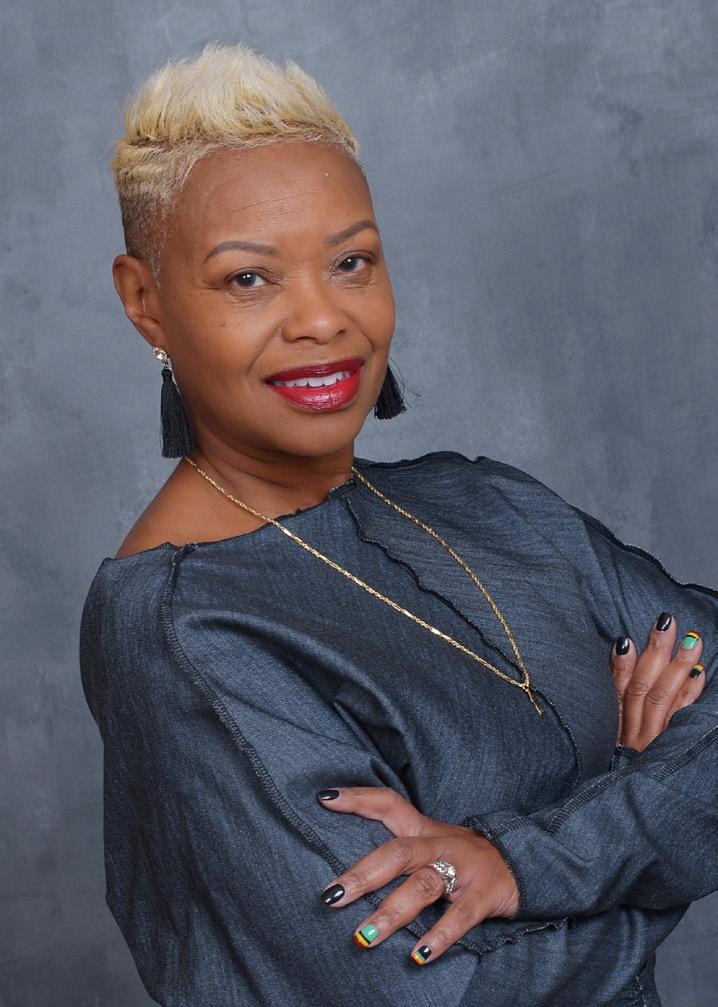
Roye-Gill enjoys running because she loves the idea of setting goals and accomplishing them.
“This can be done at any age with running or even just walking through a run,” she says.
The Philadelphia running community is an inclusive and supportive group of individuals who will always cheer you on, no matter how fast – or slow – you run. In the 2024 Broad Street Run, the oldest runner was 92 years old.
If you are considering adding running or long-distance walking to your exercise routine, be sure to consult your physician first. You may want to purchase proper running shoes from a local running shoe store so you can get the proper fit for comfort and maximum benefit. If you aren’t sure where to start, just ask a runner.
To become involved with Students Run Philly Style, call 267930-3546 or visit StudentsRunPhillyStyle.org.
Philadelphia Runner also has three running groups around the city that are free to join and each run three to five miles. For more information, go to PhiladelphiaRunner.com or call /content/ philly-run-clubs or call 215-9728333 (Center City), 215-662-5100 (University City), or 267-3367409 (Manayunk).

By Jay Nachman
Joan Colti, 87, does not consider herself athletic, yet the Olney native has become a regular pickleball player. Three mornings a week, and sometimes on Thursday nights, she plays at the Roxborough YMCA.
Simply put, pickleball is a lighter version of tennis. Pickleball uses a smooth-faced paddle to hit a perforated, hollow plastic ball. The courts are significantly smaller than tennis courts with shorter nets. These changes make pickleball an ideal sport for older players and anyone looking for a less strenuous sport.
“It’s a very social thing for me, and it keeps me active,” said the retired nurse and grandmother of four. “I think I lose more than I win, but I have a good time.”
Despite some injuries along the way, Colti said, “I was determined
the sport and happy to make space for it whenever we can.”
Len Wilson, 84, is a regular at the Christian Street YMCA, where he plays pickleball three days a week for two hours each.
Coincidentally, Wilson had a career with the YMCA that landed him in many places, including Norfolk, Va.; Louisville, Ken.; and even Jerusalem, his last stop before retiring.
helps keep Wilson in shape. “If you play it long enough, you learn better strategies. You learn how to move better,” he said. “You have to move quickly to (the ball), but you can’t run like you can when you’re 25 to 35. And that’s where some of these young people have a big advantage.”
that I was going to keep on doing it. And I’m glad I did. I’m moving around a lot better, and my doctor fully approves. He thinks it’s been very good for me. It’s good for your mind, and it’s good for your body.”
According to the Pickleheads website, players aged 65 and older make up the second largest age bracket playing the sport, making up 15.4% percent of total participants.
“Pickleball is a great sport at any age, and it’s no surprise to us that it’s a such a hit with active older adults,” said Bryan Ford, association sports director of the Greater Philadelphia YMCA. “Pickleball has so much going for it. It’s low impact. It’s as competitive as you choose to be. And, best of all, it’s very social. Every day, across our branches, we see how pickleball keeps people active, healthy and connected. So, we’re big fans of
The South Philadelphia resident and grandfather of two was an accomplished tennis and racquetball player until about 10 years ago. Upon discovering pickleball, “I liked it so much (that) I never played racquetball or tennis again,” said Wilson said. “I just play pickleball everywhere I go.”
Wilson is now an advocate for the sport. “In pickleball, if you’re sitting on the bench and there’s a whole lot of people playing, they’ll usually say ‘do you want a game?’ Then, you get in and you play, and you get to know people,” said Wilson, who like Colti, appreciates the social aspect and competition of the game.
“I like meeting younger people and learning about what they’re doing,” said Wilson, who sometimes competes with players who are 30 years younger. “I play competitively and can hold my own. I enjoy the workout and the social interaction between people who just sit and wait for the next game.”
Pickleball is not as physically demanding as other racquet sports, but it’s still aerobic and
Like any sport, players learn strategies and how to work with partners. “It’s competitive but it’s not necessarily a win-lose type of atmosphere,” Wilson said. “If you lose, you go shake hands, touch paddles and say, ‘hey, great game.’ Then, you sit down and wait for your next turn.”
Pickleball is a great sport because people at any level can play and more experienced competitors are usually willing to help guide newcomers, Wilson said.
“I would encourage people not to think they are too old,” he said. “There are levels of pickleball that are not that competitive, where it’s just hitting and having fun. It doesn’t matter whether you can’t run that fast or feel like you’re uncoordinated. Anybody can play it, and you can have fun playing it. You just know you’re not going to be as competitive. But give yourself some time, and you’ll learn the skills or the strategy that can make you play with better than average opponents or partners. I really believe that. Don’t walk away if you’re in your 70s.”
There are many places that offer pickleball in Philadelphia, including the following locations:
• Baldi Middle School – 8801 Verree Rd.
• Christian Street YMCA –1724 Christian St. | 215-7355800 | philaymca.org
• East Poplar Playground – 820 N. 8th St. | 215-686-1786
• FDR Park – 1500 Pattison Ave. | 215-683-3600 | fdrparkphilly.org.
• Fishtown Recreation Center – 1235 E. Palmer St. | 215685-9885
• Markward Playground – 400 S. Taney St. | 215-685-6649 | markwardplayground.com
• Northeast Family YMCA – 11088 Knights Rd. | 215632-0100 | philaymca.org
• Roxborough YMCA – 7201 Ridge Ave. | 215-482-3900 | philaymca.org
• Schuylkill River Park – 2550 Pine St. | 215-683-3600 | fsrp.org
• Seger Park – 1020 Lombard St. | 215-686-1780 | segerpark.org/facilities
• Water Tower Recreation Center – 209 E. Hartwell Lane | 215-685-9296 | wtrec.org
• Pickleheads.com – Type “Philadelphia” in the search to find additional locations and to learn more about pickleball.
Sports, like pickleball, and exercise are great for your cardiovascular health. But there are other ways to improve your overall wellness. By advocating for your own health care, you can take charge – and improve –your own health and well-being.
Philadelphia Corporation for Aging’s (PCA’s) Health & Wellness programs provide information, education, skill building, screenings and support for older adults. These programs cover a wide range of topics, including management of chronic conditions and medication, falls prevention, exercise, and nutrition. The goal is to equip older adults with the knowledge and skills to improve their own health and to reduce their risk of dependency, disability and illness.
PCA’s six-week series of evidence-based Chronic Disease Self-Management Programs help older adults better manage their own chronic health conditions, including diabetes, pain and HIV/AIDS. Additionally, insights are shared on how to address and combat fatigue, sleep disorders, shortness of breath, stress and emotional challenges related to aging.
Programs are open to Philadelphians 60 and older, offered at sites throughout the city, including senior centers, libraries and other community settings.
Those interested in learning more about PCA’s upcoming programs, can call the PCA Helpline at 215765-9040 – or visit pcaCares.org/ events.

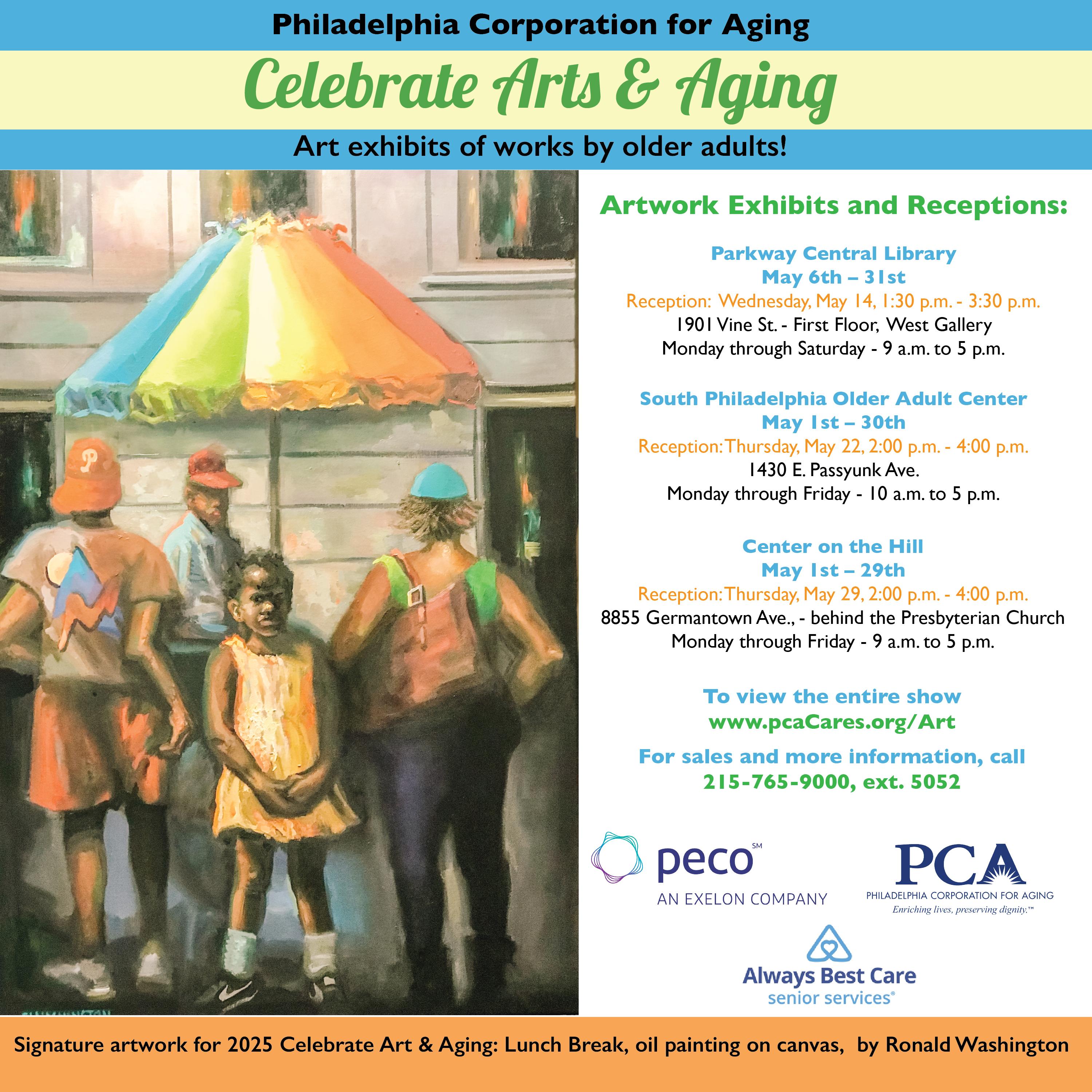

Month-long celebration
By Bill Conallen
Philadelphia Corporation for Aging’s (PCA’s) Celebrate Arts & Aging program continues to demonstrate that creativity knows no age limits. Now in its 23rd year, the program empowers older adults to explore their artistic talents and celebrate self-expression. With a resounding message that it’s never too late to create, Celebrate Arts & Aging has fostered a vibrant artistic community among older adults.
Among this year’s featured artists is Ronald Washington, a 67-year-old Philadelphia resident who found a deep connection to painting later in life. Washington’s journey into the arts has been self-directed and personally rewarding.
“Art has given me the freedom to slow down, observe and express
my everyday experiences in a new light,” Washington said. “Through painting, I’ve been able to rediscover the beauty in ordinary moments and share that with others in a way I never imagined.”
He submitted the piece that became this year’s signature artwork. “Lunch Break” is a contemplative oil-on-canvas painting that captures a quiet moment of rest and reflection. With warm tones and carefully rendered detail, the work invites viewers to pause and find stillness in their day.
“I believe there’s something universal about taking a moment to breathe, whether you’re working hard or just taking in the world around you,” Washington said. “Painting helps me stay grounded and connected – and that connection only deepens when others see and relate to my work.”
Each May, in recognition of Older Americans Month, PCA’s Celebrate Arts & Aging program showcases the creativity of older Philadelphians while underscoring the numerous benefits of artistic engagement. Research has shown that participating in the arts enhances cognitive functioning, reduces loneliness and social isolation, and promotes overall well-being.
“We believe that age should never limit anyone’s creative expression,” said Michael Drzik, PCA’s special events manager. “The arts have the power to enrich lives and foster a sense of dignity and belonging – no matter what age you are.”
More than a personal endeavor, art also serves as a powerful tool for building community among older adults. Whether through group workshops, shared studio time or public exhibitions, immersion in the arts offers meaningful opportunities for social connection and mutual inspiration. Many participants have formed lasting friendships through their artistic journeys – proving that creativity not only sparks the imagination but also strengthens bonds between people.
“Older adults have extraordinary stories to tell, and Celebrate Arts
& Aging gives them a canvas – literally and figuratively – to share their life experiences, perspectives and passions,” said Najja R. Orr, DBA, FCPP, PCA president and CEO. “These exhibits are a celebration of the imagination resilience, and beauty that lives in every generation.”
This year’s Celebrate Arts & Aging program will be a hybrid event, providing both in-person experiences at three city locations – Parkway Central Library, South Philadelphia Older Adult Center and Center on the Hill, as well as an expanded virtual gallery. Each location will showcase selected works from the exhibition and host an artists’ reception during the month.
The 2025 Celebrate Arts & Aging exhibitions will be on display during May, featuring 170 original works of art, including paintings, drawings, prints and photographs. Participating artists range in age from 57 to 100, reflecting the wide spectrum of talent and imagination found among older adults in Philadelphia.
Check out page 8 for details on dates, times and locations for this year’s host galleries and artists’ receptions.
PCA’s 2025 Celebrate Arts & Aging is sponsored by PECO and Always Best Care Senior Services.


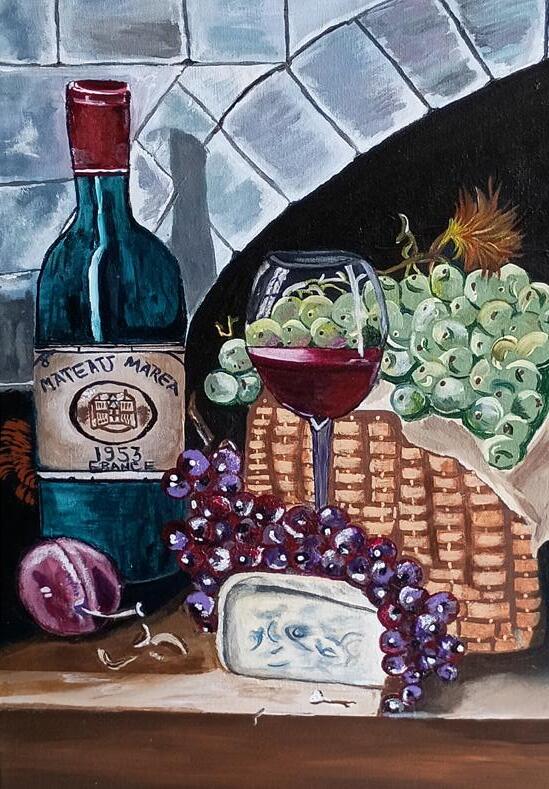


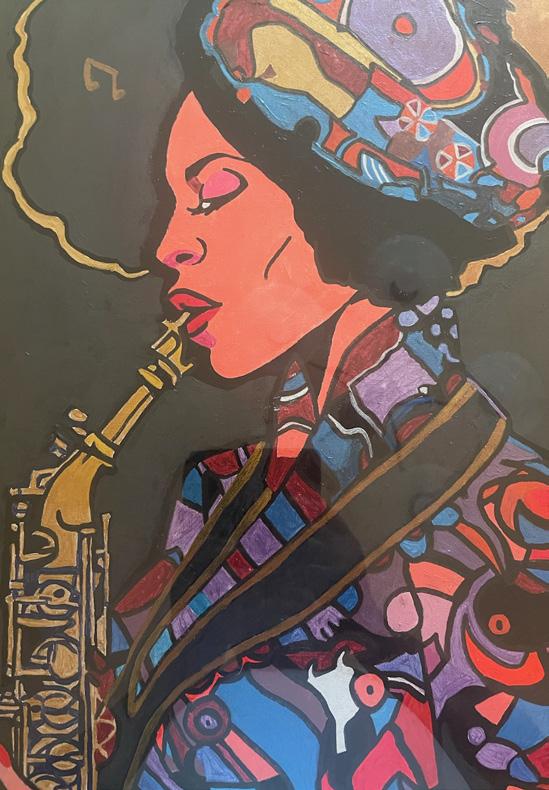







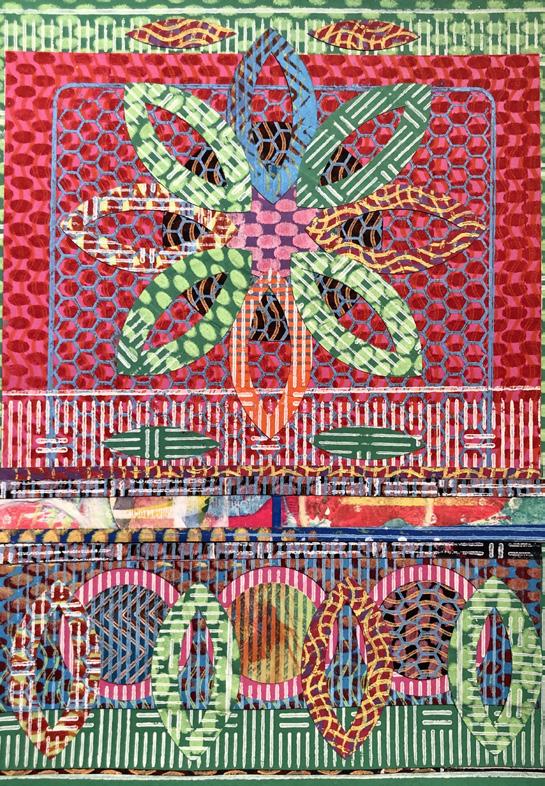







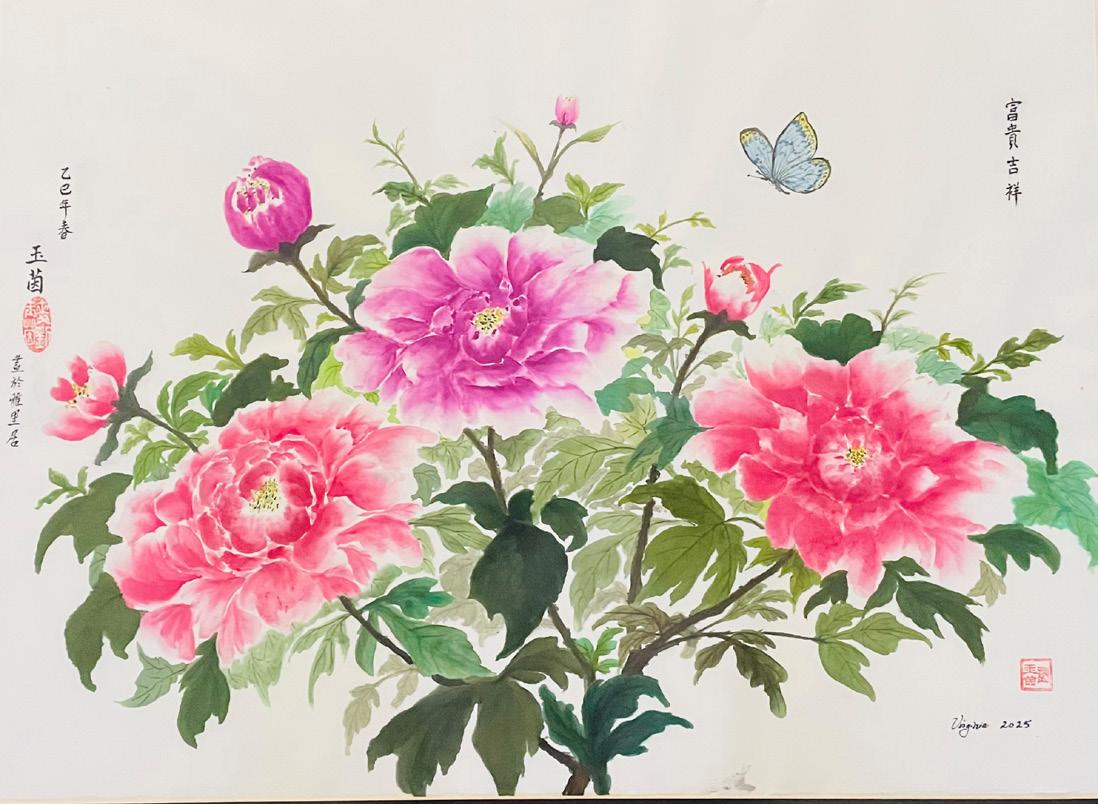



May 2025
THIS MONTH:
• OLDER AMERICANS MONTH
• ASIAN AMERICAN & PACIFIC ISLANDER HERITAGE MONTH
• MEMORIAL DAY: MAY 26
MAY 2
PINOCHLE
Sharpen your mind & enjoy friendly competition. This class will guide you through the rules, strategies & techniques. 1 p.m. Journey’s Way. 215-487-1750 | Free
MAY 5
BEGINNER BALLET CLASS
Introduction to ballet techniques, focusing on posture, body alignment & basic movements like pliés and other movements. 10 a.m. Philadelphia Senior Center –Allegheny. 267-286-1455 | $2
MAY 6
MUSIC THERAPY
Music interventions help accomplish individualized goals with a credentialed professional. 9 a.m. Lutheran Settlement House. 215-426-8610 | Free
MAY 7
YOGA
Sitting & standing stretches that help ease your mind, body & spirit. 9:30 a.m. KleinLife: Northeast Philadelphia. 215-698-7300 | Free
MAY 8
OPEN TECH CENTER
Instruction available for technology topics, such as iPads, cell phones & Zoom. 10 a.m. KleinLife: Northeast Philadelphia. 215-6987300 | Free
MAY 9
CHAIR ZUMBA
Send your calendar items two months in advance to: MilestonesNews@pcaCares.org Questions? Call 215-765-9000, ext. 5081.
Exercise to upbeat music while sitting & standing with chair support. 9:30 a.m. KleinLife: Northeast Philadelphia. 215-6987300 | Free
MAY 13
QUILTING CLASS
Unleash your creativity & learn the timeless art of quilting. Welcoming space to develop or enhance skills. Beginners welcome. Noon. Martin Luther King Older Adult Center. 215-685-2715 | Free
MAY 14
CELEBRATE ARTS & AGING RECEPTION: FREE LIBRARY
Artists’ reception: 1:30-3 p.m. Exhibit of artwork by older adult artists on display weekdays in May, from 9 a.m. to 5 p.m. Parkway Central Library, West Gallery. Presented by Philadelphia Corporation for Aging. 215-765-9000, ext. 5055 | Free

MAY 15
POETRY CLASS
Engaging & interactive class designed for older adults who want to explore the art of poetry. Beginners welcome. 10:30 a.m. Center in the Park. 215-848-772 | Free
MAY 16
LINE DANCE CLASS
Move, groove & have fun. Beginners welcome. 9:30 a.m. Martin Luther King Older Adult Center. 215-685-2715 | Free
MAY 16
NICETOWN-TIOGA SENIOR HEALTH & WELLNESS FAIR
Food & drinks, giveaways, health services, wellness resources, & activities. 11 a.m. to 2 p.m. Williams Moore Reed Memorial Park. 267-258-3111 | Free
MAY 16
PARENTING IN A NEW AGE: OLDER RELATIVES RAISING CHILDREN
Information to support older relatives (55+) who are raising grandchildren or other relative children. Topics include: positive parenting, generational differences, supportive environments, future planning & self-care. Lunch & parking included. 9:30 a.m. to 1:30 p.m. Presented by PCA’s Caregiver Support Program. Register: 215765-9000, ext. 4391.
MAY 21 BINGO
10 a.m. Philadelphia Senior Center –Allegheny. 267-286-1455 | $0.10 per board, 6-board minimum
MAY 22
CELEBRATE ARTS & AGING RECEPTION: SOUTH PHILLY
Artists’ reception: 2-4 p.m. Exhibit of work by older adult artists on display weekdays in May, from 10 a.m. to 5 p.m. South Philadelphia Older Adult Center. Presented by Philadelphia Corporation for Aging. 215-765-9000 ext. 5055 | Free

MAY 27
ENHANCED FITNESS
Low-impact, full-body workout designed to improve strength, flexibility & mobility while boosting overall health & well-being. 10 a.m. Center in the Park. 215-848-772 | Free
MAY 28
TOTAL FITNESS CLASS
Total-body workout while standing & sitting with light hand-held exercise equipment. 10:30 a.m. Philadelphia Senior Center –Allegheny. 267-286-1455 | $1
MAY 29
CELEBRATE ARTS & AGING RECEPTION: CHESTNUT HILL
Artists’ reception: 2-4 p.m. Exhibit of work by older adult artists on display weekdays in May, from 9 a.m. to 5 p.m. Center on the Hill. Presented by Philadelphia Corporation for Aging. 215-765-9000 ext. 5055 | Free
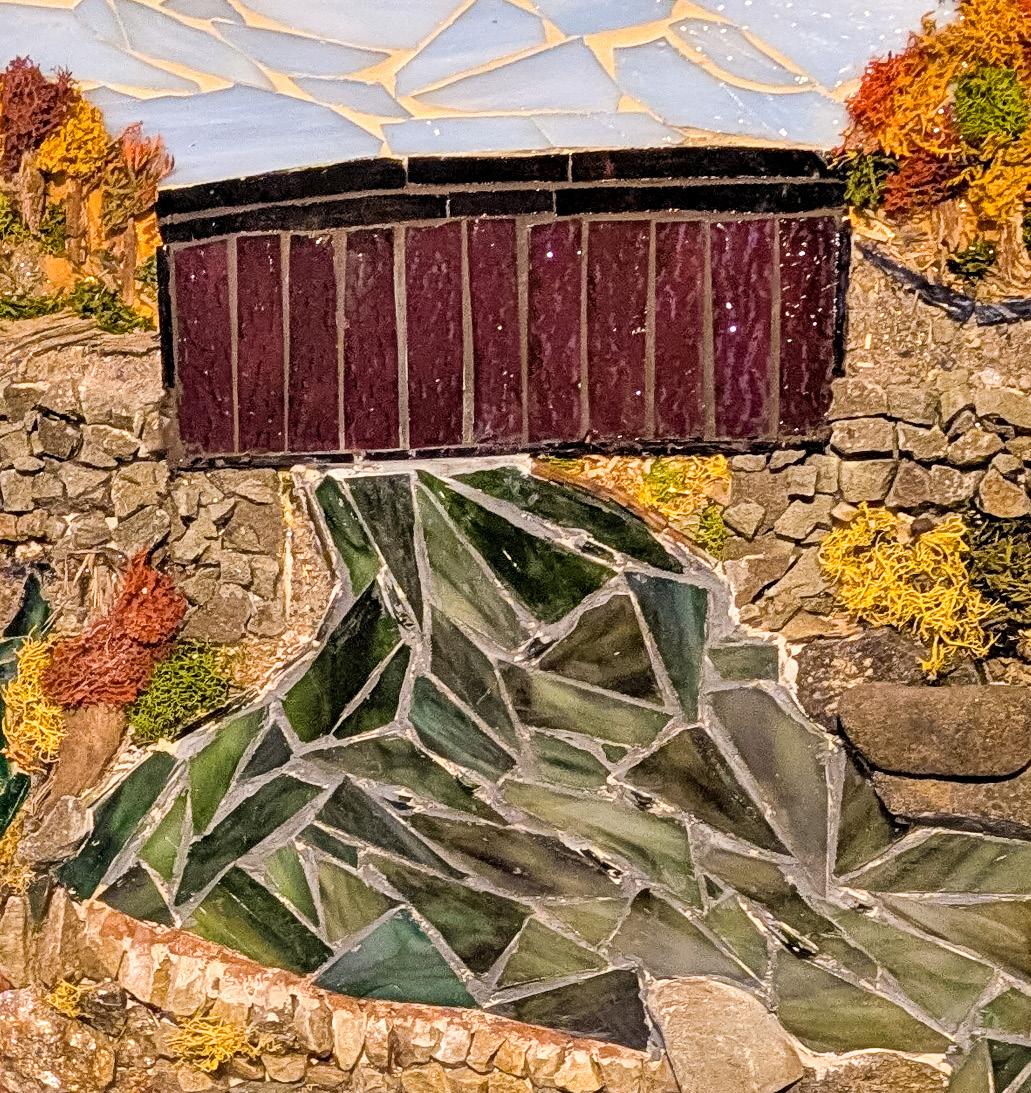



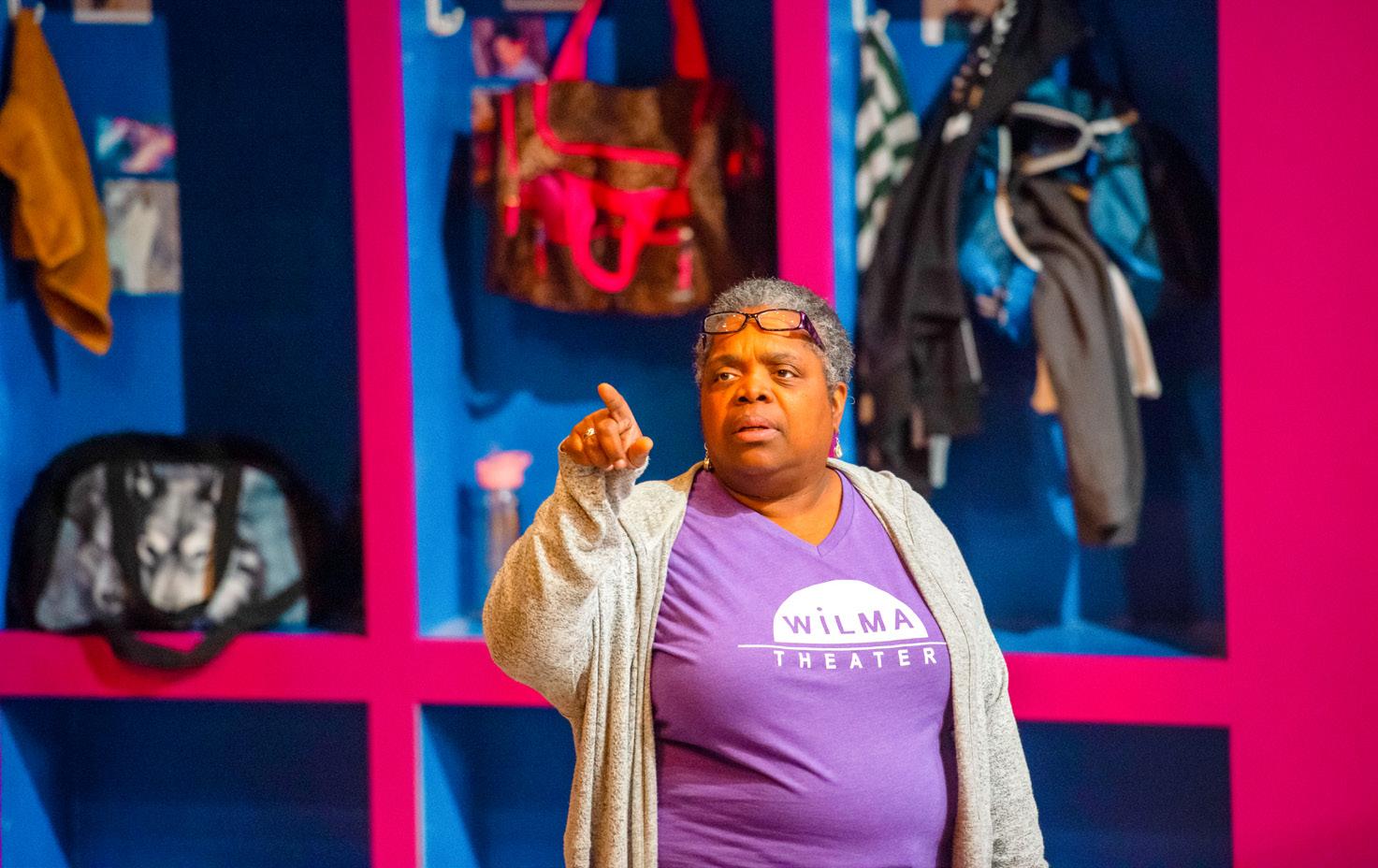
By Jay Nachman
Patreshettarlini (Pat) Adams’ mother wanted her to be a doctor. A dutiful daughter, she enrolled in Indiana University of Pennsylvania (IUP) as a biology major but graduated with a degree in theater.
Adams went on to become the resident stage manager at the Wilma Theater, a position she’s held since 1996. She has also received her share of accolades along the way, including the Bonaly Recognition for Stage Management, the IUP Alumni Award of Distinction and the Del Hughes Award for Lifetime Achievement in the Art of Stage Management.
The 66-year-old Strawberry Mansion resident and Philadelphia High School for Girls graduate entered the theater profession on a dare from her friends who had started a drama club. She auditioned and won a part in the play, “Hot l Baltimore.”
When she later auditioned and
ica,” of which she said, “We did both parts. That was an amazing experience.”
A favorite – and meaningful –experience for Adams has been her involvement with the Wilma Theater’s Portable Studio, which offers free theater programming and classes for adults.
plished, and the realization that I am a part of that. I burst into tears ... in the emotion of the moment. I did something and people noticed.”
didn’t get the part, Adams discovered – and fell in love with – the backstage production of a stage play.
Stage managing, Adams said, “is the hub of communication. We are there to facilitate.” That means making sure that the director is talking to everyone. The stage manager is also working on planning and the layout of rehearsals, along with a thousand other tasks that come with putting on a play.
After opening night, stage managers “are then the guardians of that production until it closes. We make sure the things that were agreed upon between the director and the actors and the designers are what people see when they come to the show.”
It helps to be detail-oriented, Adams said.
Her favorite shows among the more than 100 she has stage managed include “Fat Ham;” “The Invention of Love;” “Kill Move Paradise;” and “Angels in Amer-
Adams worked weekly with a group of older adults at the Philadelphia Senior Center on the Avenue of the Arts. After participants saw a play at the Wilma Theater, they created an original piece based on their response to the play, which they then performed.
“It was a highlight. I got to help create a program that benefited senior citizens,” Adams said. “And it was important because we felt that community was ... made to feel like they were not needed anymore. It’s a community that gets pushed (to) the side. We wanted to uplift them and remind them that we need them. We need their knowledge. We need their experience. So, I absolutely loved the time I got to work with them. I learned something every single time.”
Another highlight for Adams was when the Wilma Theater received the 2024 Tony Award for Best Regional Theatre. The honor was based on a recommendation made by the American Theatre Critics Association.
“That was the most amazing feeling ever,” Adams said. “There was that moment of acknowledgment of the breadth of work that the Wilma Theater has accom-
What she loves most about her work is the people. “I love the work,” Adams said. “I love the stories that we choose to tell. But I live for the people I get to work with, for the new experiences we get to have together, and for those things that we get to do.”
Now as a grandmother, Adams only works on two productions a year, rather than four. “It’s wonderful in trying to find that balance of doing that thing that I love but also having time for my family,” she said. “I want to be able support my friends by being able to see the work that they’re doing. There’s something really wonderful about actually getting to sit in the audience. I’m discovering what that is and really enjoying it.”
Adams has a joke with some of her friends: “I feel the slowdown coming. But I don’t know if I can stop.”
(See page 19 for crossword)

By Mary Anna Rodabaugh
Whether you are a musical connoisseur or interested in taking up a new hobby, Philadelphia has many opportunities for older adults to take music classes.
“Three-quarters of people aged 50 to 80 say music helps them relieve stress or relax, and 65% say it helps their mental health or mood,” according to news results from the University of Michigan National Poll on Healthy Aging. Learning how to play a new instrument or reconnecting with a previous love of music may evoke feelings of accomplishment and purpose for older adults.
Here are some places in Philadelphia where you can take music classes.
If you have been longing to get back to the instrument you once played, the Free Library of Philadelphia’s Musical Instrument Collection at the Parkway Central Library, 1901 Vine St., has guitars, steel drums, ukuleles and more instruments that are available to borrow for free. Stringed
instruments come with a gig bag, tuner, straps and picks. In addition to the Musical Instrument Collection, the Free Library also offers free beginner music lessons for various instruments throughout the year. To learn more call 1-833825-5357 or visit FreeLibrary.org/ locations/parkway-central-library.
Both in-person and virtual courses in piano, voice, drums, bass, strings, woodwinds and additional instruments are offered by Philly Music Lessons, 2111 E. Susquehanna Ave. Instructors will even travel to your location, so you do not have to leave the comfort of your home. Students can register to get half off their first trial lesson with discounts on package deals and income-driven rate opportunities. If you do not own an instrument, no problem. Philly Music Lessons also offers instrument rentals. To learn more, call 610-451-7883 or visit PhillyMusicLessons.com.
Settlement Music School
Settlement Music School offers older adult weekly music
classes scheduled before 2 p.m. on weekdays for students ages 60 and older. Lessons are offered in Queen Village, Germantown, Wynnefield, Northeast Philadelphia and virtually through video conference. Classes include Intro to Piano and World Rhythms. To learn more, call 215-320-2601 or visit SettlementMusic.org/music/ adults/classes.
This music school once was exclusively for children and teens but has expanded to offer adult lessons. School of Rock Philadelphia, located at Franklin Music Hall on 412 N. 7th St., offers an adult program for students over 18 who are looking to either improve their musical proficiency or learn to play with no prior musical experience. Instruments include guitar, bass guitar, drums, voice and piano. Prices vary and a free trial is available. To learn more, call 267-639-4007 or visit SchoolOfRock.com.
Temple Music Prep offers a variety of music lessons and classes for adults who are 50-plus through its Center for Lifelong Learning and the Osher Lifelong Learning Institute (OLLI). To learn more: 215-204-1505 (OLLI), 215-2044866 (continuing education programs) or visit noncredit.temple. edu.
Through ARTZ Notes, people living with dementia listen to music, make their own, and engage with other participants and the performers. ARTZ Notes features diverse music and experiences, including performances paired with conversations, interactive improvisation and sing-alongs, and conversations and movement around pre-recorded music of all genres. ARTZ Philadelphia works to improve the quality of life and wellbeing of people living with dementia and their care partners through joyful interactions around arts and culture. To learn more, call 610-721-1606 or visit artzphilly.org.
This fun, free and interactive program is presented by the Community Artist Fellows and highlights the expressive power of music for people living with dementia. Curtis Institute, located at 1616 Locust St. in Lenfest Hall, Room 411, invites music enthusiasts to join in making, enjoying and discussing a variety of musical compositions. The class, “Creative Expression Through Music,” is accessible to people living with cognitive impairment or dementia, who attend with a caregiver or care partner. The 2025 program has ended. To learn about upcoming music lessons, call 267-624-4282 or email pennmemorycenter@pennmedicine.upenn.edu.
Mary Anna Rodabaugh is a writer, editor and writing coach.
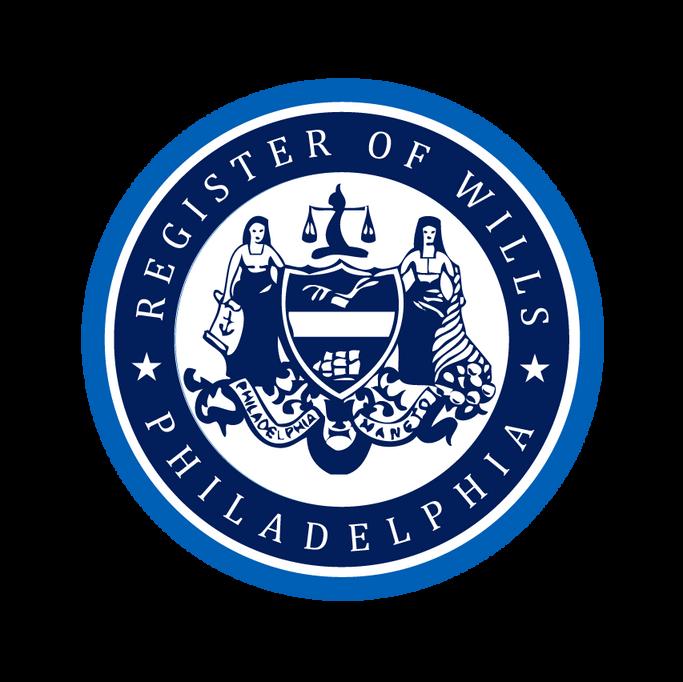
and Request a
We require:
The names that both people used when they applied for the marriage license
The date of the marriage
A self-addressed, stamped envelope
A telephone number
To Request a Certified Copy:
$40 money order for the certified copy fee
$70 money order for the expedited certified copy fee
To Request an Exemplified Copy:
$65 money order for the certified copy fee
$95 money order for the expedited certified copy fee
Please Note: Each money order should be payable to the CITY OF PHILADELPHIA


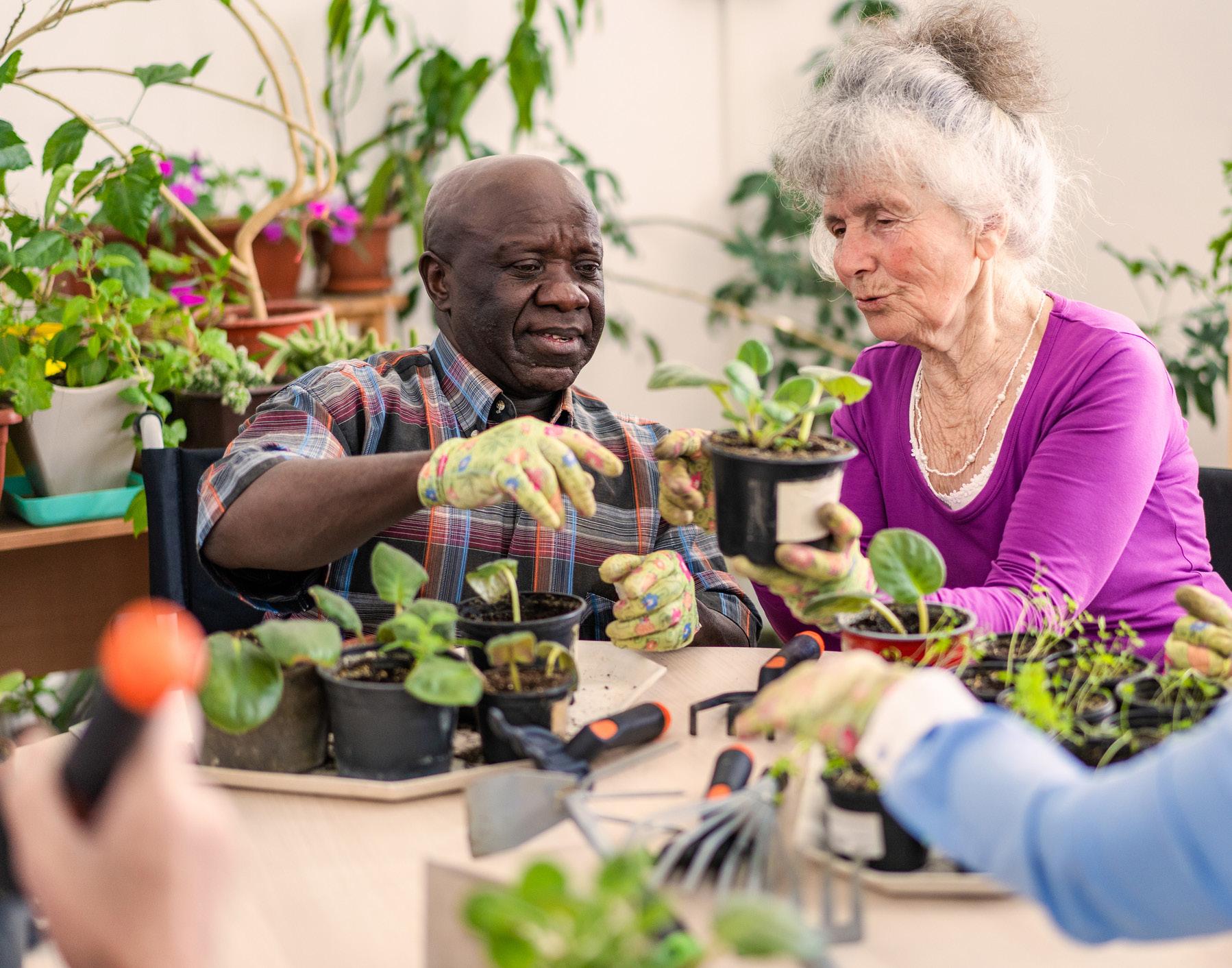
By Mary Anna Rodabaugh
Do you miss the joys of gardening? Even without access to a community garden in Philadelphia or no land to plant outdoors you can still revisit your green thumb in an accessible way. Windowsill or indoor container gardens are a great option for people who cannot bend or kneel on the ground.
Benefits of an indoor garden:
• Brighten up your living space.
• Clean and filter indoor air.
• Produce fresh herbs.
• Easy set up and maintenance.
• Great for beginner gardeners and people with limited mobility/ability.
• Fun, regular activity that yields visible results.
When edible plants are fully grown, there is no need to find a new place to plant them. Instead, you can harvest fresh herbs and vegetables to use in cooking or to share with friends and neighbors.
Here is a step-by-step guide to setting up your indoor garden. Decide what plants you want to grow. The following plants thrive indoors:
• Herbs, such as basil, thyme, parsley or chives.
• Leafy greens, such as lettuce, cabbage, spinach or kale.
• Green onions and garlic.
• Ginger. (The plant’s root can be ground, sliced or shredded for use in cooking.)
• Radishes.
• Sprouts.
• Pea shoots.
• Cherry tomatoes.
• Hot peppers.
• Venus fly trap. (Eliminates nuisance houseflies.)
• Cactus or succulents, including aloe vera. (Do not require much water.)
Find the sunniest window in your home. Typically, this is a window facing south. Be sure the windowsill is wide and study enough to support potted plants after they’ve been watered. If the window does not have an adequate sill to hold plants, a plant stand or small table could be placed by the window.
Pick a container for your plant. You can use what you have around the house. A glass or plastic cup will work just fine. Even a cardboard egg carton can be transformed into a small flower bed. Inexpensive flowerpots are often available at thrift or dollar stores. If the plant container is not made of glass, poke at least one hole in the bottom of it. Then, place a plate or tray underneath to allow for proper drainage without leakage.
Place soil in the container, allowing room for root growth at the bottom; plant seeds or seedlings; and cover with more soil. Potting soil is ideal for a window-
sill garden environment. You may want to purchase a mini-spade or mini-shovel to reduce soil spillage when planting. Alternatively, a plastic spoon can be used.
Follow the maintenance instructions for each plant. Some plants require daily watering, while others do better with less frequent watering. Most plants will need a consistently warm and sunny windowsill to grow.
Water plants weekly, or as needed. A good rule of thumb to determine if a plant needs water is to “check the top inch of soil with your finger,” according to the Philadelphia Horticultural Society’s (PHS) website (PHSonline.org).
“If the soil feels dry, then it’s time to water.” Avoid overwatering, as “too much water can lead to root rot, mold and fungal issues in the soil. If leaves start yellowing or the soil smells funky, you’re likely overwatering.”
Rotate your plants weekly to promote maximum growth. Turn each pot halfway. Also, move a plant that is on the left of the windowsill to the right. This will give each plant a new vantage point for consistent sun and warmth.
For additional tips, tricks and classes about gardening, you can call 215-988-8800 or visit PHSonline.org.

By Jay Nachman
When William Grow attended firefighting school in the U.S. Navy, he found his life’s work. In 2016, Grow retired as a lieutenant after 30 years with the Philadelphia Fire Department. After retiring, he continued volunteering at the Fireman’s Hall Museum in Old City, where he first began helping out in 2009.
“I’m doing something useful,” said Grow, 73, of Roxborough. “Coming here to volunteer gives me a purpose.”
The museum is housed in a renovated 1898 firehouse (at 147 N. 2nd St., just north of Elfreth’s Alley) and interprets the history of firefighting in Philadelphia through its collection of artifacts. The museum also promotes fire safety and prevention.
Grow primarily does personnel research and delights in sharing his findings with relatives of firefighters from generations past. “They’re not names on a paper in some dusty old logbook,” Grow
people 100 years from now.”
Shea, 85, retired on June 31, 1999, from an insurance company at 5th and Walnut streets, where he worked as an underwriter, and began volunteering at the museum the next day. Volunteering at the museum provides a connection between Shea’s interests in insurance, fire insurance and the fire department.
pany insured it, let alone whether or not there was a fire mark.
Shea enjoys “bringing up knowledge and telling people the stories not only about fire marks but about the fire department.”
said. “The information I give to the family brings it alive to them, (and provides) information about their ancestor that they didn’t know.”
Grow found a story in a department newsletter about a horse and a driver at Engine 19 in Germantown who became very close. When the driver retired in 1902, the horse became depressed. He no longer jumped up for runs when the bell rang and had to be led to the engine. When the driver came back to the firehouse to visit his former colleagues, the horse perked up.
After seeing the horse’s reaction, “the (retired) driver made it a point at least once a week to come back and give (the horse) carrots and sugar cubes,” Grow said.
Into the files the story went. This archival work is important to the firefighting community. Through his research, Grow was able to create a file for a previously unknown fireman killed in the line of duty.
As he was told by fellow volunteer Robert Shea when he first started, “You’re not doing it for you or for us. You’re doing it for
American fire marks, also known as “badges” and “house plates,” are signs issued by insurance companies that were affixed to the front of a property to mark that the property was insured for fire.
The museum has more than 200 fire marks in its collection from across the country, with the earliest one dating from the 1790s, said Shea who is an expert in fire marks and a self-described “minor expert in Philadelphia volunteer firemen.”
Shea’s hobby began when he discovered the Fire Mark Circle of the Americas, which was organized in 1972 by a group of fire mark collectors in the United States.
“You always learn something new. I’m very much a historian so I’m always interested in how things developed and interesting stories,” said Shea, who has been known to take his work home with him.
Used primarily for advertising purposes, fire marks were used from 1752 until approximately 1900. However, it’s a myth that a fire company would not fight a fire unless there was a fire mark on the burning building, Shea said. American volunteers fought all fires –whether or not the property was insured, regardless of which com-
There is so much to learn about the history of firefighting in Philadelphia, where Benjamin Franklin founded the nation’s first volunteer fire company in 1736. Visit the Fireman’s Hall Museum to find out more.
When it comes to fire safety, firefighter Brian Anderson, the Fireman’s Hall Museum curator, said every home should have working smoke alarms and a fire escape plan. You should have one smoke alarm on each floor of your home, including the basement.
If you live in an apartment building or rent a house, the landlord must provide smoke alarms on every level of the home. If your landlord has not provided smoke alarms, call Philly311 to report the violation.
Philadelphia homeowners can request smoke alarms through the Philly311 app or by calling 311, and the Fire Department will install them in your home. To receive smoke alarms, you must live in a one- or two-family home that is occupied by the owner. According to the city, it might take up to 60 days from the time of your request until the actual installation.

Source: U.S. Centers for Disease Control and Prevention
Physical activity gets your body moving and heart beating faster. Even if you haven’t been physically active for a while, there are ways to get started. Here are some tips to get moving. Take it slow
Start with activities you can do safely, then increase the amount and intensity you do gradually as your confidence and abilities grow. Ask a health professional what physical activities are right for you. Work your way up to more time and/or more strenuous activities. (Always talk to your health care provider before starting any new exercise routine.)
Physical activity can help manage symptoms, improve mobility and make daily activities easier. Work with your doctor to come up with a physical activity plan that matches your abilities.
Keep it fun
Choose activities and locations that you enjoy, and that are easily accessible to you.
Look for ways to make physical activity a part of your daily routine. You can park farther away from your destination or get off the bus a stop early. If you are able, take the stairs instead of the elevator. Even standing up and walking in place during commercial breaks will help get you moving more.
Schedule physical activity for times in the day or week when you feel more energetic.
Invite a friend or family member to be physically active with you on a regular basis. You can also look for scheduled events in the city or attend fitness classes at your local senior community center. (For locations, call the PCA Helpline at 215-765-9040 or visit pcaCares.org/senior-centers.)
